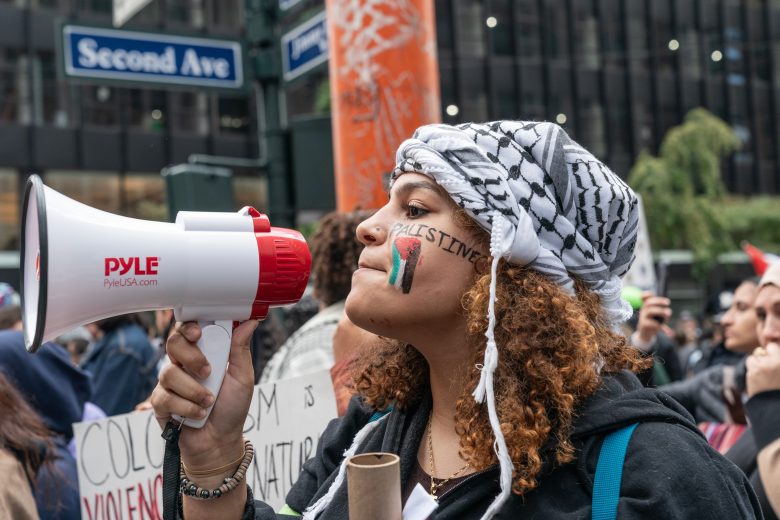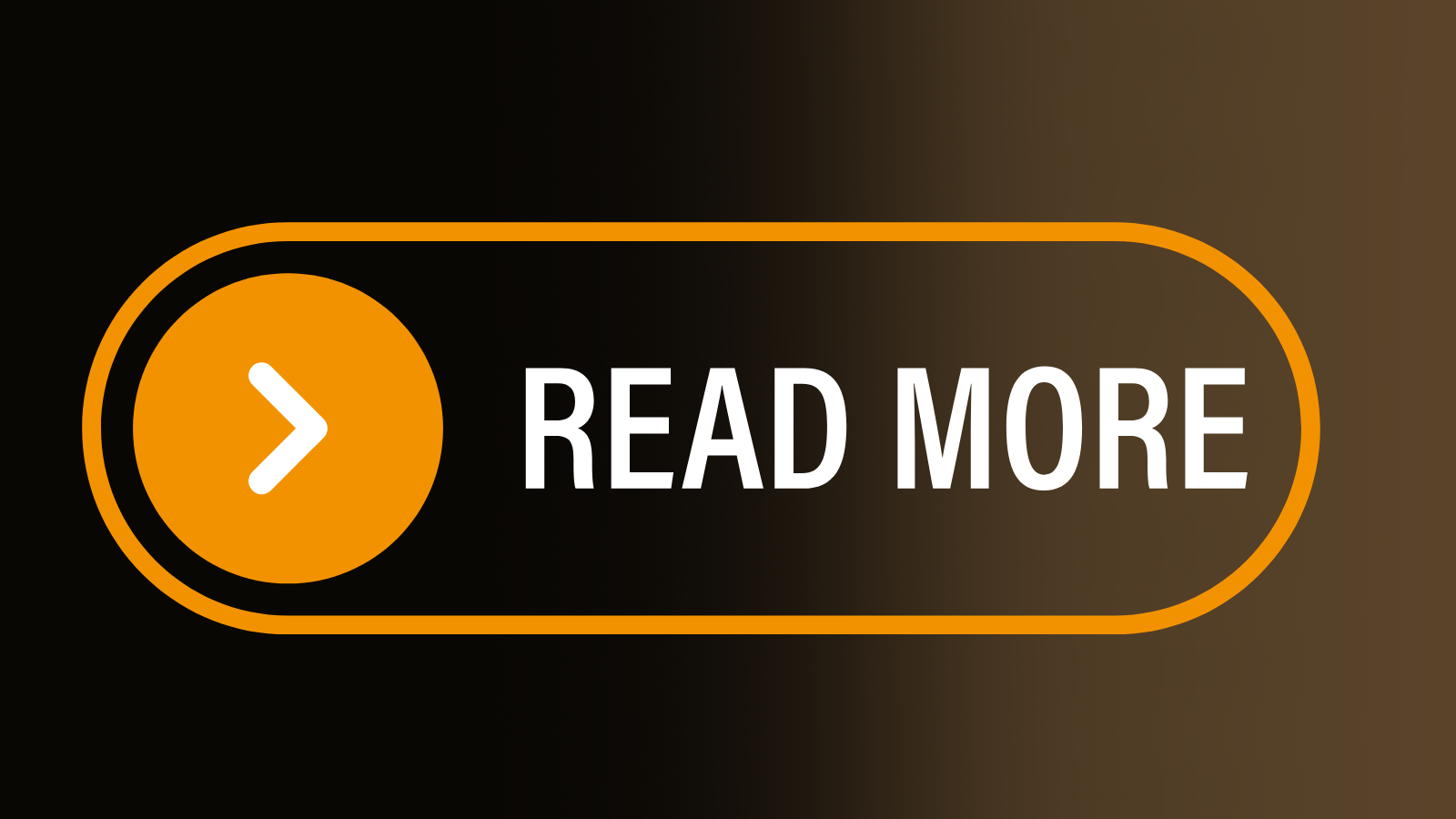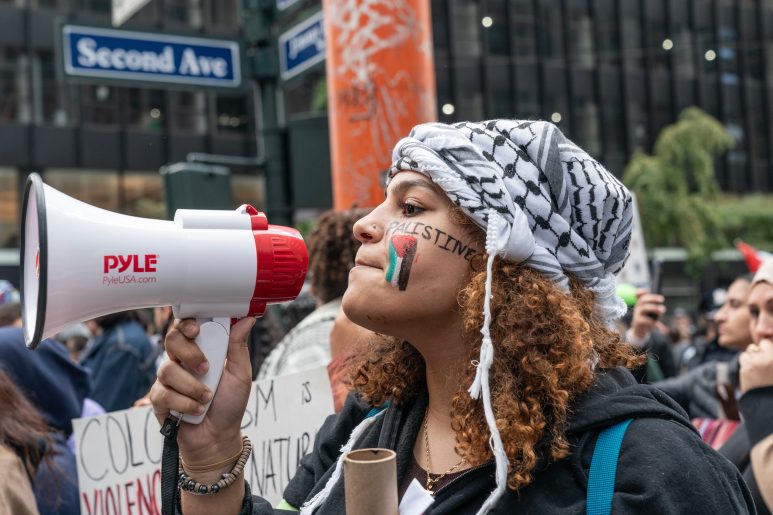By Angelo Boccato, Freelance Journalist
The solidarity with the Palestinians and their plight in the onslaught unleashed by Israel on Gaza has been widespread in the Global North and the Global South.
While a divide remains between public opinion and government actions and narratives in the Global North on this front, some countries like Ireland, Norway, and Spain have moved from what is seen as a general Western appeasement of Israel and have decided to recognise a Palestinian state.

On May 20, Karim Khan, prosecutor of the International Criminal Court (ICC), announced that he has applied for arrest warrants for five Israeli and Hamas leaders and the UN’s top court, the International Court of Justice (ICJ), has ordered Israel to “immediately halt its military offensive in Rafah”.
In the Global South, South Africa and Nicaragua have brought legal cases against Israel and Germany, respectively for conducting and aiding a genocide in Gaza, at the International Justice Court.
In particular, some of the most disenfranchised groups, like Indigenous and First Nation groups, but others as well, have expressed and shown their solidarity towards Palestinians, highlighting the connection between the story of occupation and oppression at the hands of Israel and their own experience.
The common threads
“Muslims and South Asian, North African and Arab immigrants (in the US and Canada) must interrogate the legitimacy of America’s and Canada’s right to exist and the costly trade-off they make in taking on national identities in these countries that come at the expense of Indigenous people at “home” and imperialist adventurism at home,” Dr.Mohamed Abdou, (Arcapita Visiting Assisting Professor of Middle Eastern, South Asian and African Studies at Columbia University) wrote in an op-ed for Al Jazeera.
“Palestine’s freeing is simultaneously entwined with the freeing of Indigenous and Black people in Turtle Island (North America). To end Palestinian occupation, the bewitched American/Canadian false dream must fall and be replaced by a genuinely de-colonial enchanting else,” Abdou concludes.
Similar views have been expressed in other outlets since October 2023.
Dr. Ramzy Baroud and Romana Rubeo, the editor and managing editor of The Palestine Chronicle respectively, wrote in Common Dreams back in November, “The war in Gaza has galvanized global solidarity movements, especially those who are invested in Indigenous rights. All of this is reminiscent of the height of the anti-colonial national liberation movement of decades ago”.
“Thus, this historic moment must be seized, not only for the sake of Gaza and the Palestinian people but also for the sake of freedom and justice everywhere else in the world.”
In Canada, Candace Maracle, of the Wolf Clan from Tyendinaga Mohawk Territory and a laureate of the Hnatyshyn Foundation REVEAL for Indigenous Arts, involved different voices on the matter for CBC Indigenous.
Kanien’kehá:ka activist Ellen Gabriel said, “We live under an authoritarian rule in our communities because of the Indian Act. We need to rise with those who are powerless like in Palestine”.
Jeffrey Wilkinson, co-author of The Wall Between: What Jews and Palestinians don’t want to know about each other with Raja Khouri, told CBC Indigenous that Palestinians experience is “almost entirely hidden in our Western narrative and that the expression of their experience is othered as terrorists, treated as antisemitism or as a threat to the Jewish way of life.
Khouri highlights how the people of Gaza have been living under siege for 16 years, since Hamas’ takeover, and how if a young woman wants to attend university in another country, she must wait two or three years for a permit from Israeli authorities, a permit which may never arrive. “It’s been referred to as an open-air prison often. A prison has criminals in it. This place has families in it,” added Khouri.
Dr. Gabor Matè, a Holocaust survivor, Canadian writer, and physician, said: “When our Prime Minister Justin Trudeau says that Israel and Canada have the same values, I say, yeah, that’s unfortunately true. They’re both countries founded on the extirpation of Indigenous cultures and the displacement of Indigenous people.”
Matè made a parallel between how many Israelis are unaware of the country’s history (a history brought to light prominently by the work of historians like Israeli historian Ilan Pappè, author of The Ethnic cleansing of Palestine) and the history of residential schools (a colonial policy aimed at eradicating Indigenous cultures, languages, and communities) which is left out the Canadian school curriculum.
In Australia, January 26 is celebrated as Australia Day, a day seen by many as a contentious holiday as it celebrates the arrival of European colonists in the continent.
While solidarity between Aboriginal communities and Palestinians is not new, as Dan Butler wrote for the National Indigenous Television (NITV) “….but this year will also see gestures of solidarity: organisers in several capital cities are planning to highlight the ongoing devastation in the Palestinian territories, as the Israeli bombardment of Gaza enters its fourth month”.
Palawa man and activist Michael Mansell told Butler, “The whole sense of relevance [between] what’s happening in Gaza to the Aboriginal struggle here in Australia is that Indigenous people whose lands have been taken over around the world seek solidarity in the common cause”.
“The struggle of Aboriginal people for control of our lives in our country is the same struggle of the Palestinians for control of their lives on their lands. And so it’s pretty, pretty obvious that there is a parallel.”
Pushbacks and criticism
These views often meet pushbacks and criticism, mainly around the fact that the founding of Israel does not share the same patterns of the US, Australia, or Canada, as Jewish people had a presence and a connection with that territory for centuries.
While these views hold merit, it is important to remember their centrality in the narratives of Zionism, narratives which pointed out the right to the land for the Jewish people, denying those of Palestinians who had lived in the same lands for centuries. However such criticism is deeply flawed.
Israeli Prime Minister Golda Meir famously summarised these views when she was quoted saying in the Sunday Times and the Washington Post in June 1969 “There were no such thing as Palestinians”.
Meir was also quoted saying “When was there an independent Palestinian people with a Palestinian state? … It was not as though there was a Palestinian people in Palestine considering itself as a Palestinian people and we came and threw them out and took their country away from them. They did not exist”.
The denial of the existence of Palestinians as a people and the existence of Palestine still holds ground to the present day and fits in with the constant dehumanisation of Palestinian people and the Global North’s indifference to the occupation of the West Bank and the onslaught in Gaza.
Let’s consider these widely known comments by Meir and the appreciation expressed towards her by Senator Bernie Sanders (comparing her tenure positively against the current government led by Benjamin Netanyahu) during a recent episode of Pod Save the World, while considering his support for the Palestinians. It becomes clear how deep-rooted the confusion on the history of Israel and Palestine is widespread also among progressive and left-wing circles that support Palestinian rights.
President Joe Biden has often mentioned his meeting with Golda Meir in 1973, as a central event which influenced and fuelled his long-term support for Israel.
If we look again at Australia, back in 2022, Na’ amod: British Jews against the Occupation co-founder Em Hilton wrote, in the Israeli online media +972 Magazine of the double standards within the Australian Jewish community on occupation and solidarity. “While it is important for Australian Jews to reflect on the ways they profit from the legacy and ongoing mechanisms of settler colonialism, and doing so marks a positive first step toward redressing the displacement of First Nations Peoples, such gestures also present a troubling paradox: with the vast majority of communal organisations maintaining their commitment to Zionism, they are either silent on or supportive of, Israel’s long-term project of ethnic cleansing of indigenous Palestinians, which has vast parallels with Australia’s own colonial history.”
Another famous right-wing trope when it comes to solidarity with Palestinians is the criticism of LGBTQiA groups that support Palestinian rights, by portraying all Palestinians as homophobic and denying the very existence of Palestinian members of LGBTQiA communities.
These narratives are inherently, more or less openly Islamophobic, not to mention ignorant and flawed.
Sally Tamarkin interviewed in the online media Them Dr. Sa’ed Atshan, Associate Professor of Peace and Conflict Studies and Anthropology at Swarthmore College & Palestinian Quaker LGBTQ human rights advocate on queer solidarity with Palestine. Atshan said “Where the queer solidarity movement with Palestine fits in this landscape is that there’s a long, long history of queer solidarity with Palestine in the U.S., in Europe, and around the world, but the queer Palestinian movement was born in the early 2000s and has become transnational and has only increased over time. But now, I think, given the horror of what Israel is doing in Palestine, specifically in Gaza, I believe that it’s very, very clear that we are witnessing a resurgence of global queer solidarity with Palestinians.”
“I also think that it’s racist, in my opinion, to argue that the struggle against racism that’s directed against Palestinians should somehow be halted or undermined because there’s homophobia within Palestinian society. Not only does it erase the existence of queer Palestinians, who themselves are subjected to both homophobic violence and racialized violence, it also renders invisible the history of LGBTQ activism within Palestinian society. But if you think about how Palestinians get exceptionalized… There’s this kind of exception when it comes to the oppression of Palestinians; the oppression that we face gets normalized and even justified.” Atshan added.
Then there is the long-lasting Pan-African and Afro-descendant solidarity with Palestinians, historically exemplified by Nelson Mandela’s quote “But We know too well that our freedom is incomplete without the freedom of the Palestinians”.
Other examples can be seen in the support in Ireland with the Palestinian struggle given the Irish struggle for independence from the United Kingdom; Ireland was also the first country in the European Union to endorse the recognition of a Palestinian state back in 1980.
Other examples can be seen in the support in Ireland with the Palestinian struggle given the Irish struggle for independence from the United Kingdom; Ireland was also the first country in the European Union to recognise a Palestinian state back in 1980. My mistake in formulating the paragraph as it could lead to confusion- The first country in the European Union to endorse the recognition of a Palestinian state back in 1980.
It is crucial not to mix different struggles, or to fall into traps of Orientalism of course. Still, this media discourse and overall global solidarity are a testament to how the Palestinian struggle is a global one and that international pressure needs to be applied on governments in the Global North to halt the ongoing massacre in Gaza, in which such governments and several mainstream media are sleepwalking into.
Picture from Shutterstock
Disclaimer:
The views and opinions expressed in this article are solely those of the author and do not reflect the official policy or position of the Media Diversity Institute. Any question or comment should be addressed to [email protected]

How is +972 covering the war between Israel and Gaza? A conversation with Ghousoon Bisharat, Editor-in-Chief of +972 Magazine, an online, nonprofit magazine run by Palestinian and Israeli journalists since 2011.
How does the Ma’an News Agency cover the war in Gaza? The Ma’an Network was created in the late 90s by Palestinian television and radio journalists from the West Bank and the Gaza Strip. They united to defend freedom of expression and to improve the quality of media production in the occupied Palestinian Territories.
How are Tunisian media reporting the war between Hamas and Israel? A conversation with Hanene Zbiss, Tunisian investigative journalist.

Click here to watch our webinar organised on 9 May with the International Center for Journalists (ICFJ) with Israeli and Palestinian journalists.

